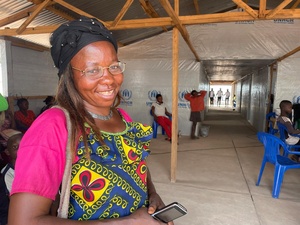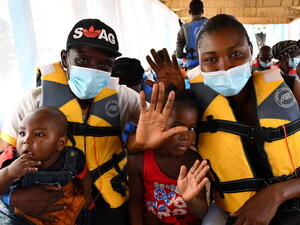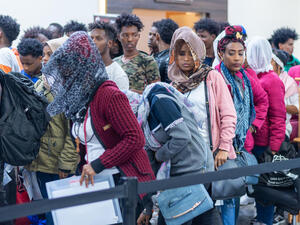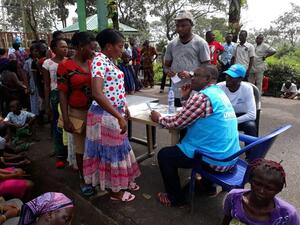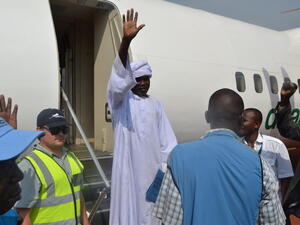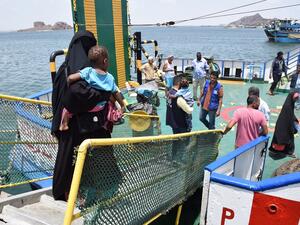UNHCR resumes return convoys from Sudan to Eritrea
UNHCR resumes return convoys from Sudan to Eritrea
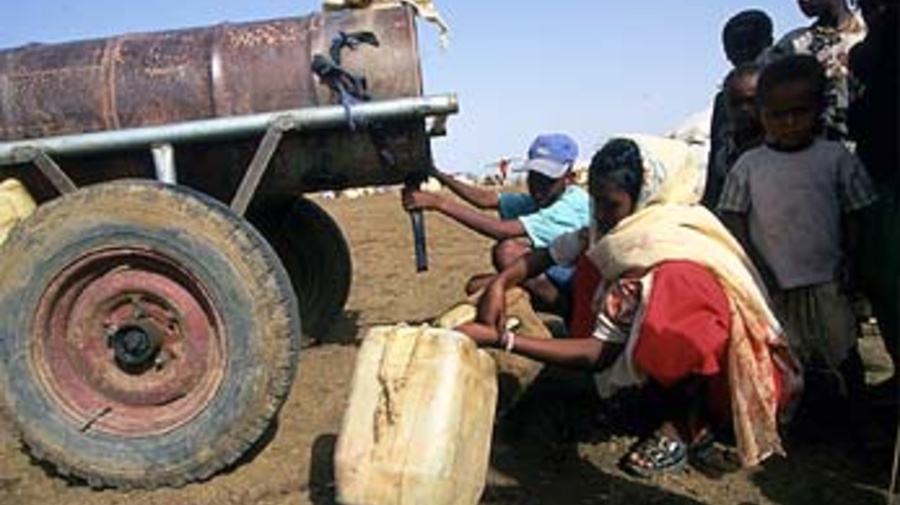
Eritrean returnees in Meskrem village. Some 103,000 have returned home from Sudan since May 2001.
EL GIRBA, Sudan, Oct 14 (UNHCR) - The UN refugee agency is resuming the repatriation of some 36,000 refugees from Sudan to Eritrea this week, while at the same time handing over vacated refugee camps to the Sudanese government.
UNHCR suspended its return programme in July with the start of the rainy season, which makes road travel difficult in many parts of eastern Sudan. The agency is due to resume its operations on Wednesday, when the rainy season in Sudan officially ends.
In the meantime, the momentum of repatriation has already started. This morning, the first groups of 134 Eritrean refugees left camps around Sudan's eastern border with Eritrea. They were transported to a transit centre in El Girba, 100 km from the border, where they will spend their last night in Sudan.
On Wednesday morning, they will proceed to a border checkpoint to board Eritrean buses and trucks headed for a transit centre in the Eritrean border town of Tesseney. There, they will receive a cash grant, basic household items and a three-month supply of food from the UN World Food Programme. From the transit centre, they will make their own way to their home villages, mainly in the nearby Gash-Barka region of south-western Eritrea.
Wednesday's returnees will be the first of some 36,000 Eritrean refugees in eastern Sudan who have registered to go home. UNHCR plans to organise return convoys once every four days.
Some 103,000 Eritrean refugees have already returned from Sudan since May 2001, more than 50,000 of them with assistance from the UN refugee agency.
With their departure, UNHCR will hand over some disused camps in Sudan's Gadaref state to the authorities on Thursday. More than 3,600 refugees who lived at the six sites - Mafaza, Hawata, Wad Awad, Um Sagata, Um Brush and Zarzour - have either been repatriated or transferred to Um Gargour camp as part of a camp consolidation exercise in June.
Along with the camps, the refugee agency will also hand over infrastructure like a hospital ward it built at Gadaref hospital, water facilities at the vacated sites, and 1,300 desks to support local schools in the area.


